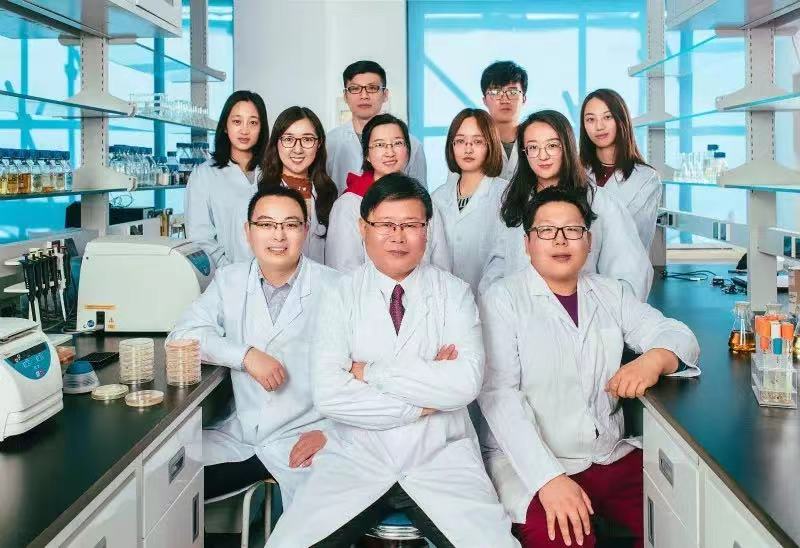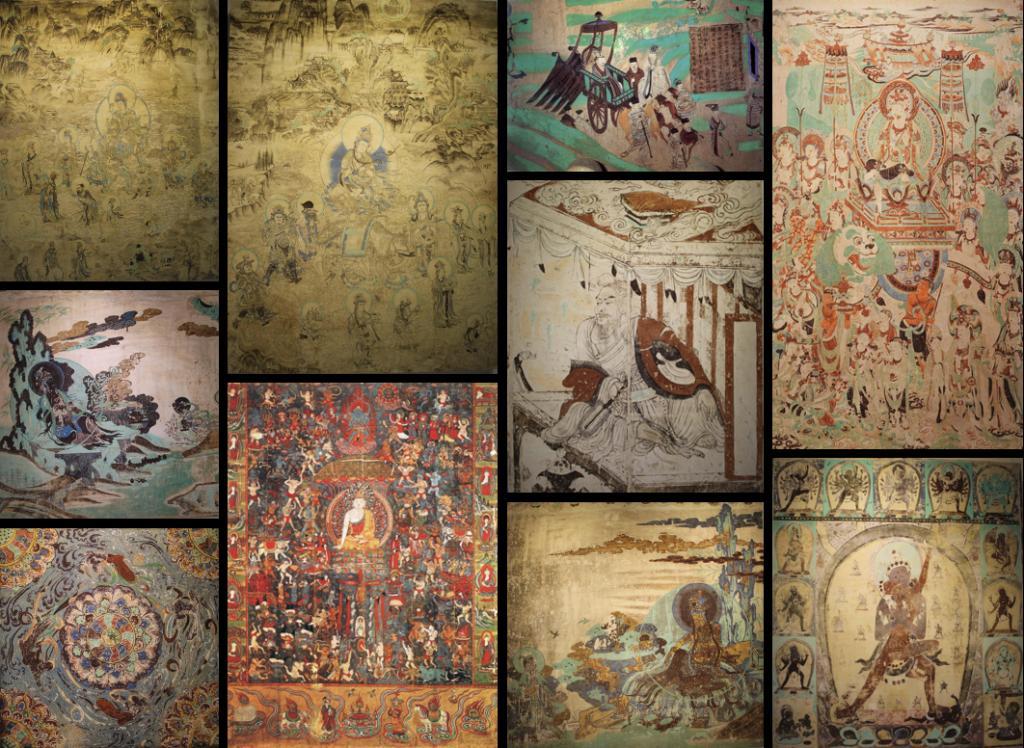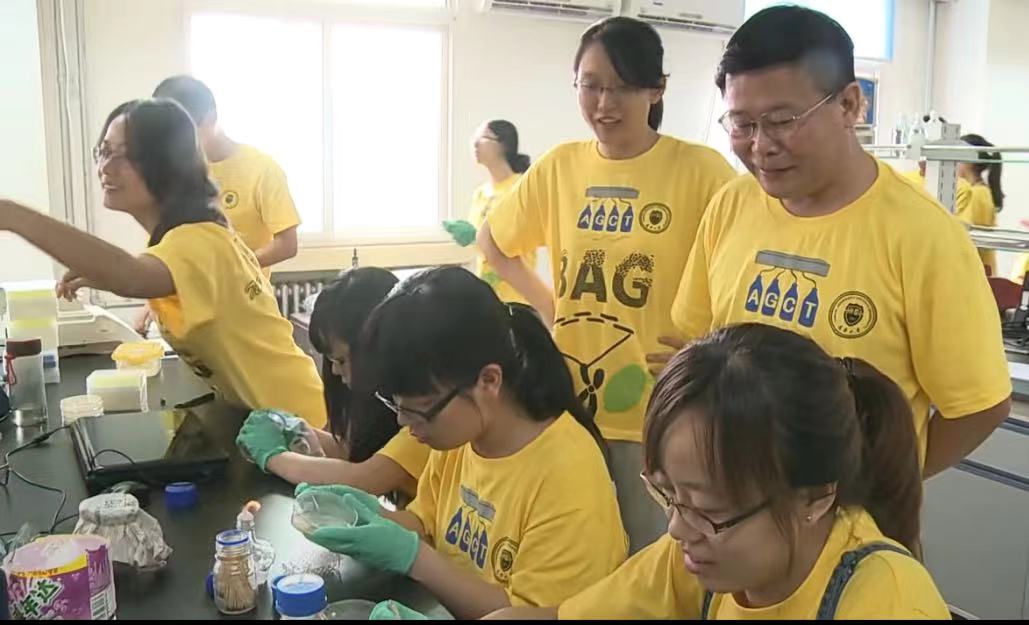A recent piece of news DNA Storage Technology Allows Dunhuang Grotto Murals to be Preserved for Thousands of Years hit the major media pages, featuring the synthetic biology team from Tianjin University. One year ago, Tianjin University made the running in the formulation of The Tianjin Biosecurity Guidelines for Codes of Conduct for Scientists which was listed as a global code of ethics for biosecurity by WHO. It was the synthetic biology team of Tianjin University that served as its back supporting force.
Starting from scratch, Tianjin University’s synthetic biology research is now standing at the frontier of the world science and technology, attracting great global attention after more than a decade’s development. All of this stems from an international competition for university students as well as an undergraduate course.

The synthetic biology team of Tianjin University

DNA Storage Technology
In 2006, professors from the School of Chemical Engineering and Technology of Tianjin University learned about the International Genetically Engineered Machine competition (iGEM) initiated by the Massachusetts Institute of Technology in the United States. In the competition, students were expected to make some standardized genetic components firstly and then assemble these components so as to realize biological functions. The philosphy behind the competititon is to integreate engineering methods into biology study. That’s in line with what Tianjin University’s synthetic biology research group advocates. Furthermore, during the competition, students are required to engage in brainstorm, discussion and idea exchanges, coinciding with the teaching process expected by the School of Chemical Engineering and Technology of Tianjin University.
“iGEM is a perfect platform to train our students,” said one of the professors. As a result, from 2007, the School of Chemical Engineering and Technology supported student teams to officially participate in iGEM and won the gold awards for several times. Moreover, Tianjin University held two international symposia on iGEM in 2007, promoting the development of synthetic biology in both China and Asia.
Owing to this competition, Tianjin University has trained large quantities of outstanding talents in the field of synthetic biology over the past ten years.
“The competition not only enlightens me on the direction of synthetic biology technology but also guides me in my future research path” said Li Yanran, an assistant professor in the University of California, Riverside and once a member of Tianjin University’s first student team participating in iGEM. Currently, she is working on studying and transforming the biosynthesis of natural products from plants, related regulation and control as well as signal pathways utilizing synthetic biology tools.
Pan Qing, investment director of Zhejiang Tianhua Technology Development Co., Limited, also got to know synthetic biology through iGEM. At present, synthetic biology has become her key investment focus. “ After 15 years of development, synthetic biology has moved from laboratory to industrial line. In the future, it would bring about significant changes in the mode of production, solving problems such as energy, food, environment, materials and so forth. In the next ten years, synthetic biology companies will emerge in large numbers ranging from the bottom-end enabling technology to production and application-based enterprises. Many industry giants will stand out among them” said Pan Qing.
Based on iGEM, Tianjin University also offers a course of synthetic biology for undergraduate students, namely “BAG (Build A Genome)”. Apart from teaching students the basic knowledge and skills of artificially synthetic chromosomes, the course nurtures students’ research and innovation capabilities by way of instructing students to pay attention to and acquaint themselves with the cutting-edge scientific issues as well as advances in synthetic biology.

Build A Genome course
It was also in this period that Tianjin University started to get involved in a major international research program of synthetic biology. By 2010, scientists had completed the synthesis of prokaryotic genomes and marched towards the synthesis of eukaryotic genomes. Therefore, the Synthetic Yeast Genome Project (Sc2.0) was born on demand. Tianjin University joined the project and cooperated with research institutes from the United States, the United Kingdom, France and other countries. They collectively completed the chemical synthesis of a total of five chromosomes of Saccharomyces cerevisiae.
In the cooperation, Tianjin University made multiple breakthroughs in core technologies of genome synthesis and accomplishied the chemical synthesis and reproduction of two Saccharomyces cerevisiae chromosomes. The achievement was selected as one of the "Top Ten Scientific Advances in China" in 2017 and was included in the undergraduate curriculum of Johns Hopkins University and also in the textbooks of general high schools in our country.
On March 10th, 2017, Tianjin University published two papers regarding the synthesis of yeast chromosome in Science, one of the most authoritative academic journals in the world, with Professor Yuan Jinying as the corresponding author and two of Tianjin University’s doctoral students as the first authors. Many of other byline authors were just undergraduates when they got involved in the project.
For instance, among the 93 authors of the paper “Perfect” designer chromosome V and behavior of a ring derivative, many of them were sophomore and junior undergraduates. In December, 2016, Qu Menglan, a graduate of Tianjin University working in Wuhan, Hubei province, was informed in a call of her scientific contributions in the paper published in Science. Then she submitted her personal information as the author of the paper. “I'm so excited. I have never thought that the yeast genome fragment I synthesized in my junior year of university would be so useful. I'm one of those who have published papers in Science,” Qu said with overwhelming surprise.
It is learnt that while working on the project, the average age of the authors of these two papers was less than twenty eight years old. That’s what satisfied the teachers most. “We have found a novel training pathway for undergraduates, postgraduates and doctoral students in chemical engineering, pharmaceutical and life science.”
Developing from a course to an international leading-edge discipline, Tianjin University pioneered the establishment of undergraduate, master's and doctoral degree programs of synthetic biology in China and also took the lead to compile the textbook of Introduction to Synthetic Biology for undergraduate education.
In 2013, Tianjin University was approved as a national international cooperation base for synthetic biotechnology and the Synthetic Biology Frontier Scientific Center according to the “Mount Everest Plan” put forward by the Ministry of Education in 2018.
In recent years, Tianjin University’s research on synthetic biology has entered the fast track of development. It initiated the International Association for Major Facilities in Synthetic Biology in 2019. In 2021, The Tianjin Biosecurity Guidelines for Codes of Conduct for Scientists drafted by the Center for Biosafety Research and Strategy of Tianjin University was listed as a global code of ethics for biosecurity by WHO. Tianjin University's synthetic biology research team has gathered a number of high-level talents including academicians of the Chinese Academy of Sciences, Distinguished Young Scholars and others. As the NSFC Innovation Research Group, the team has trained around 2000 postgraduates.
For the past few years, Tianjin University has undertaken a batch of national major tasks such as the National Key Research and Development Projects relevant to synthetic biology with the number of papers in this field gradually climbing to the front ranks of the world. Growing out of nothing, Tianjin University’s synthetic biology research has stridden into the front array in the world after several years of accelerated development.
“Actually, the greatest achievement amid the development of synthetic biology in Tianjin University over the past few years is the cultivation of talents, which provides a large number of high-end personnel to the development of synthetic biology in both China and the world. They are the backbone of future world,” said Prof. Yuan Jinying, an academician of the Chinese Academy of Sciences.
By Ma Ziyu
Editor: Eva Yin






